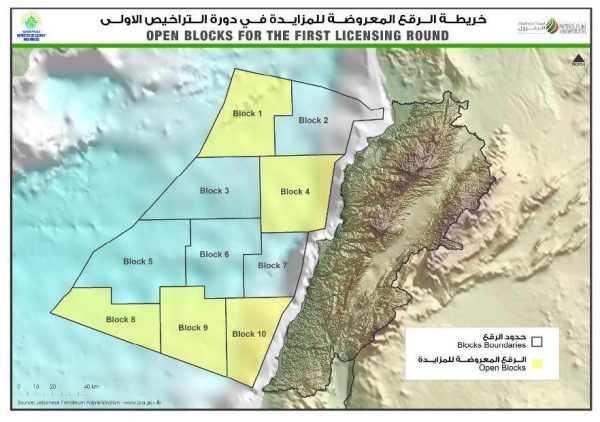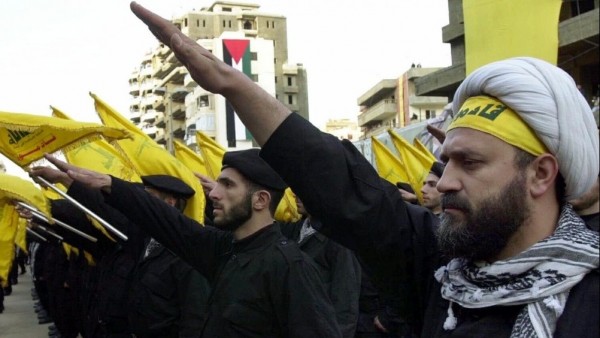By DAVID ROMANO AND NAJIA HOUSSARI

- Two blocks to be explored by Russian firm overlap with Lebanese maritime areas for energy exploration along country’s northern border
- Official failure to object to oil and gas exploration deal shows extent of the Iran-Hezbollah axis’s sway over the Lebanese state
MISSOURI, USA/ BEIRUT: Syria has signed a four-year oil and gas exploration deal with a Russian company in Mediterranean waters that Lebanon claims as its own. The two blocks to be explored under the new contract overlap with Lebanese maritime areas for energy exploration along the country’s northern border. Yet Lebanese outrage has been conspicuous by its absence.
Now imagine a time, not so long ago, when the shoe was on the other foot. Lebanon demarcated its maritime borders in 2011 and, three years later, offered tenders for oil and gas companies for Block No.1 in the north. Justifiably or not, Syria responded by not recognizing the Lebanese demarcation and lodging a protest.
The striking contrast between the two reactions, separated by seven years, was not lost on the Lebanese opposition.
“Where do the official Lebanese authorities stand on this issue?” asked Rola Tabsh, an MP from the Future Movement bloc, when Syria announced the contract last month. “What is this suspicious coma? We waited for the violation from the south, from the enemy (Israel), but it came from the north, from a brotherly country.”
Similar concern was voiced by Richard Kouyoumjian, former minister and serving member of the Lebanese Forces parliamentary bloc, who said: “The government and the relevant ministries are required to have a sovereign position and clear clarification.”
He called for the “resumption of demarcation negotiations in the south, an end to Syrian complicity and plundering of our money and oil wealth.”
In the south, Israel’s demarcation line conflicts with the Lebanese one, which has led to protracted indirect negotiations sponsored by the UN and mediated by the US. The Lebanese-Israeli dispute and negotiations have been ongoing for more than 10 years now.
Hezbollah, being a pro-Iranian Shiite militia and political party, did not appear in favor of even indirect negotiations with Israel over the issue, but grudgingly acceded to them. A resolution to the maritime border dispute with Israel remains crucial to Lebanon’s ability to attract oil and gas companies to its waters.
Hezbollah understood that it would take the blame if Lebanon failed to develop offshore oil and gas deposits due to a refusal to negotiate. But the group still tried to link the maritime borders issue to a dispute it has regarding Lebanon’s land border with Israel.

Although Israel completely withdrew from Lebanon in 2000, Hezbollah claims that a small tract of land known as the Shebaa Farms are also part of Lebanon and still occupied by Israel. Even though the UN determined the Shebaa Farms to be occupied Syrian land, the issue provides Hezbollah with an excuse to maintain its conflict with Israel and justification to retain armaments, long after all other Lebanese militias disarmed.
Hezbollah — and the Lebanese state it has largely controlled since 2008 — has proven vociferous in defending its interests regarding Israel. It therefore strikes many Lebanese as more than curious that the government has yet to utter a word regarding Syrian encroachments in the north.
The Syrian contract with a Russian company includes at least 750 square kilometers of maritime waters claimed by Lebanon. If Mediterranean oil and gas deposits comparable to those of Israel and Cyprus exist off Lebanon’s shores, the potential revenues from such could go a long way in helping Lebanon out of its current financial woes.
Arab News

Leave a Reply
You must be logged in to post a comment.